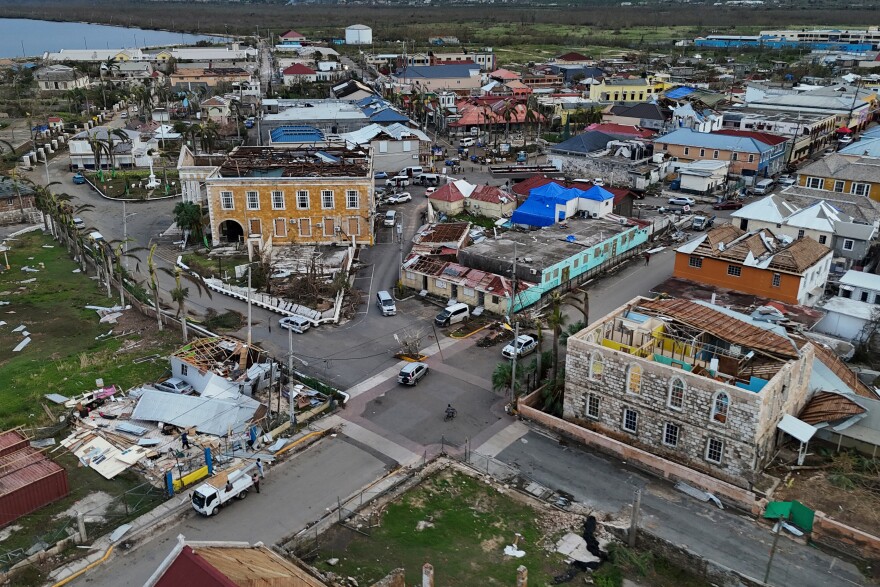Hurricane Melissa hit Jamaica hard, killing some and leaving behind a lot of damage.
Eunice Grant lives here in Connecticut and is from Jamaica; she was there, on the island, as Melissa made landfall.
WSHU's Ann Karrick spoke with Eunice Grant about her experience and the way forward after the storm.
WSHU: First, let me say I'm happy to know your extended family survived the storm with their lives. Tell us, how is everybody doing now?
EG: Well, right now, everyone is in survival mode, cleaning up, working together with neighbors to help them, cleaning up from the devastation. Most roofs were lifted and so water is in their houses. So everyone is helping each other.
WSHU: Were you in Jamaica because of the storm, or were you just there visiting?
EG: Oh, no, I was there visiting with families. You know, just enjoying my family again.
WSHU: A vacation that turned a little more adventurous than you had planned.
EG: Absolutely.
WSHU: Where in Jamaica were you, and what was it like when the storm actually arrived?
EG: I was in the Montego Bay, Jamaica area, and when the storm hit, we were all in our little houses, huddling together. Not long after the storm hit, the doors, the windows, and everything started smashing, and water started to come in on us. Together, we stand as a family, drying up everywhere we can. But that became overbearing. Not only that, but neighbors came knocking after they had lost their roofs and had no covering or shelter. They came knocking on our doors, and we had to let everyone in for safety. And so together, we had to just ride out the storm.
WSHU: That's very dangerous, to go out in the storm,
EG: But I think out of fear with children, some had young children, no roofs, and their house, everything is soaked by the water — I think they just brave it up and hope that they will get there. This is very close to where we live. It's in the housing scheme there.
WSHU: So, how many people total did you end up having in there?
EG: We had with our families, was four, and I think six, two families came in, six in total, four adults and two children.
WSHU: And obviously, you're all still here. So that's the best news,
EG: Absolutely, absolutely. I was most relieved to get out of Jamaica. But my heart breaks really badly in many places for those who have to endure this hardship. This will be a very long road of recovery for them. So many places are damaged, I'm sure the authorities there, the government there, will have to look into fixing the hotels, the hospitals, the schools -- and so fixing all those places that are devastated will take quite a while to do so. And so the other people with houses also, who will need total, you know, replacement of houses. This will be a very long time.
WSHU: What would you say is the best way right now to support people who are in Jamaica?
EG: Right now, so many people are in need of cash right away. The government will have to concentrate on fixing the major places, the airports, the schools, and the hospitals -- and so for families, it will be a while before they can get to them. Send some cash; they can buy some food on the ground right there. The phone lines will come up, and the banks will start to open.
WSHU: There are parts of the island that are open and functioning…?
EG: Absolutely. It is six of the parishes of Jamaica that were affected very badly. And so with 14 parishes, you still have eight more parishes that were not terribly damaged. The roads are terrible. Some roads are cut off. I want people to know that Jamaicans are resilient. I want them to know that this devastation will, however, take them a very long time to recover. It has left so many people deeply emotional, and so I would want you to continue to stand with Jamaicans for as long as you can, and to support them in whatever way you can.
WSHU: Eunice, thank you so much. And of course, all the best to you and your family and friends who are there trying to clean up from this mess.
EG: Thank you very much. Much appreciated.
Samaritan’s Purse is one group, already bringing in supplies and support to Jamaica, as they did in North Carolina. https://www.samaritanspurse.org/

